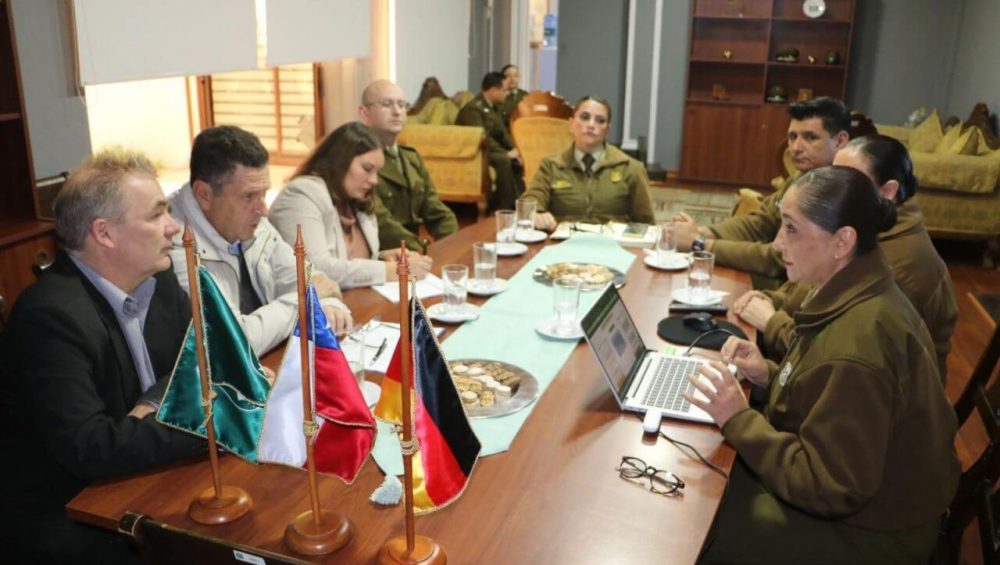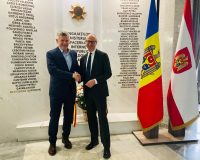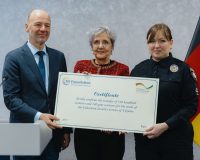At the beginning of September, our colleagues Ronja Berner and Udo Möller travelled to Chile as part of the trilateral police reform project with Chile and Colombia. The project is financed by the German Federal Foreign Office. Together with our partners, they met representatives of Carabineros de Chile and discussed achievements as well as future priorities. The visit showed how values, dialogue and human rights are becoming central pillars of institutional reform.
Values as the Foundation of Reform
In Santiago, the delegation met the Center for Doctrine and Ethics of Carabineros de Chile. Together with the Police of Baden-Württemberg, the Carabineros initiated a comprehensive values process. Around 40 percent of officers took part, reflecting on the mission, role and ethical orientation of their institution.
The outcome was the adoption of ten guiding values. These values provide an essential foundation for a citizen-oriented and human rights-compliant police. Embedding them in daily practice is a decisive step to strengthen trust between police and society. For the GS-Foundation, supporting this process shows how German expertise can combine with local ownership to achieve sustainable impact.
Dialogue Instead of Force
Another central topic of the mission was public security. Together with the Hamburg Police, the Carabineros piloted new methods for managing large events. A practical highlight has been the creation of dialogue agents. Wearing white helmets and vests, these officers enter directly into conversation with demonstrators or crowds. Their role is to mediate and de-escalate before violence breaks out.
This approach marks a clear change in practice. In the past, mass events were often met with force. Today, dialogue agents are being trained across the country. The model shows how partnership-based training can translate into systemic reform. For citizens, this means more security through communication rather than confrontation.
Human Rights at the Core
For the first time, the GS-Foundation delegation also met with the Department for Human Rights and Family Protection of Carabineros de Chile. The exchange provided insights into how the institution addresses family protection and integrates human rights into daily policing.
Placing human rights at the center of police work is not only a legal requirement but also an important step to build legitimacy and trust. By supporting this effort, the trilateral project helps anchor human rights as a lived practice rather than an abstract principle.
Strategic Dialogue and Outlook
The mission also included a strategic meeting with General Muñoz, Head of International Relations at Carabineros de Chile. Together with him and his team, Ronja Berner reviewed project achievements and discussed priorities for the coming year.
Key results of the trilateral project so far include the establishment of evidence collection units, the deployment of dialogue agents, the implementation of the values process and first steps to strengthen citizen trust. Looking ahead, new areas of cooperation will be added, including training for drug control units.
This forward-looking approach reflects the essence of the trilateral project: strengthening citizen-oriented and human rights–compliant policing, delivering measurable improvements through training and standards, and building trust through long-term partnerships.
The project mission to Chile underlined how reform becomes tangible when values, dialogue and human rights are addressed together. With the support of the German Federal Foreign Office and in partnership with Chile and Colombia, the GS-Foundation will continue to contribute international expertise while fostering local ownership.
Police reform is a long-term process. Yet the steps taken in Chile show that change is possible when institutions open themselves to reflection, innovation and cooperation.
Thank you, Carabineros de Chile, for the warm welcome, the productive exchange and the excellent cooperation.







